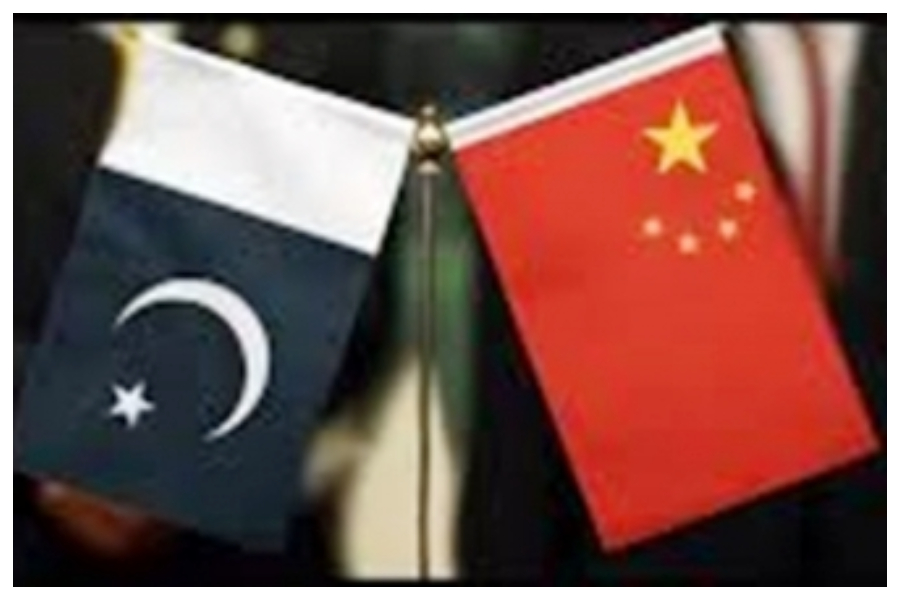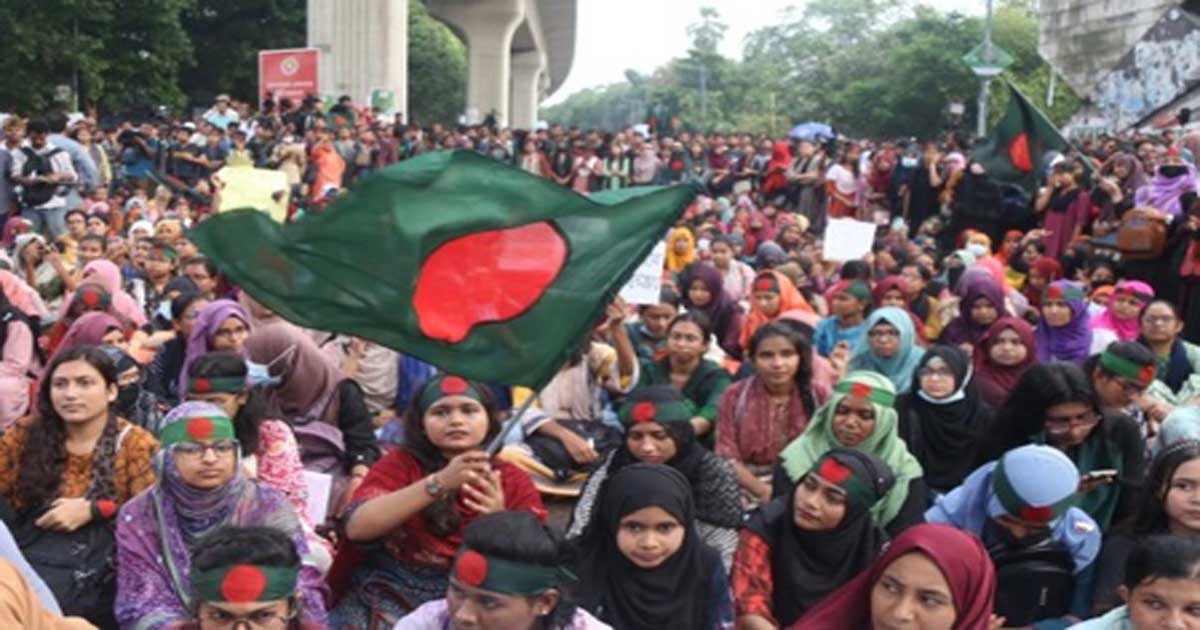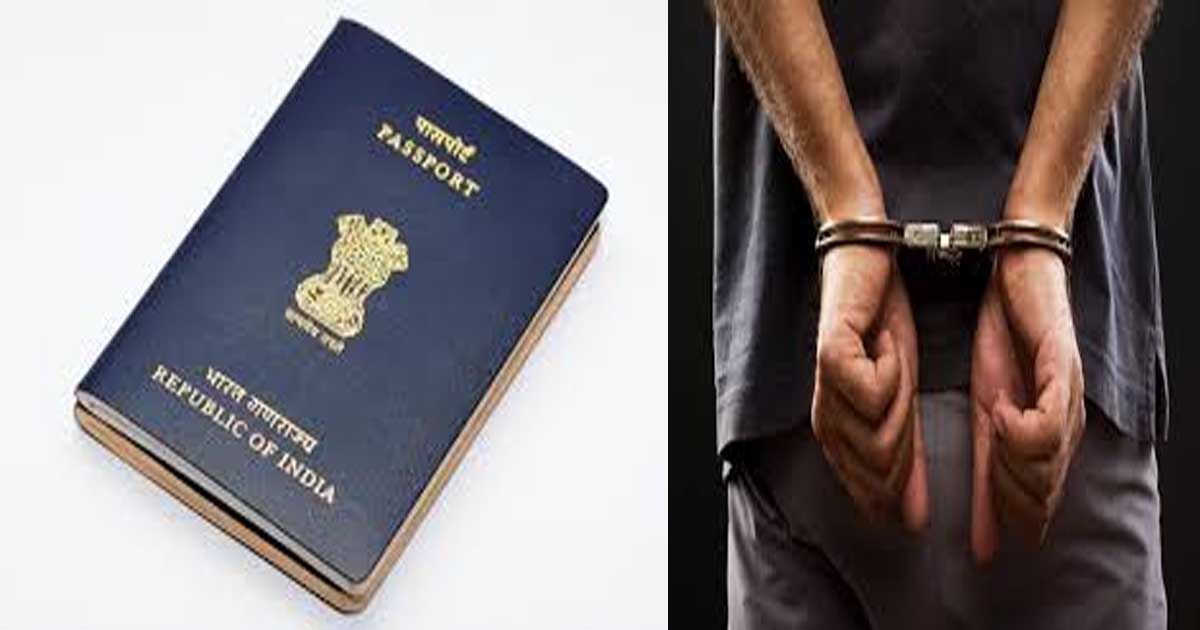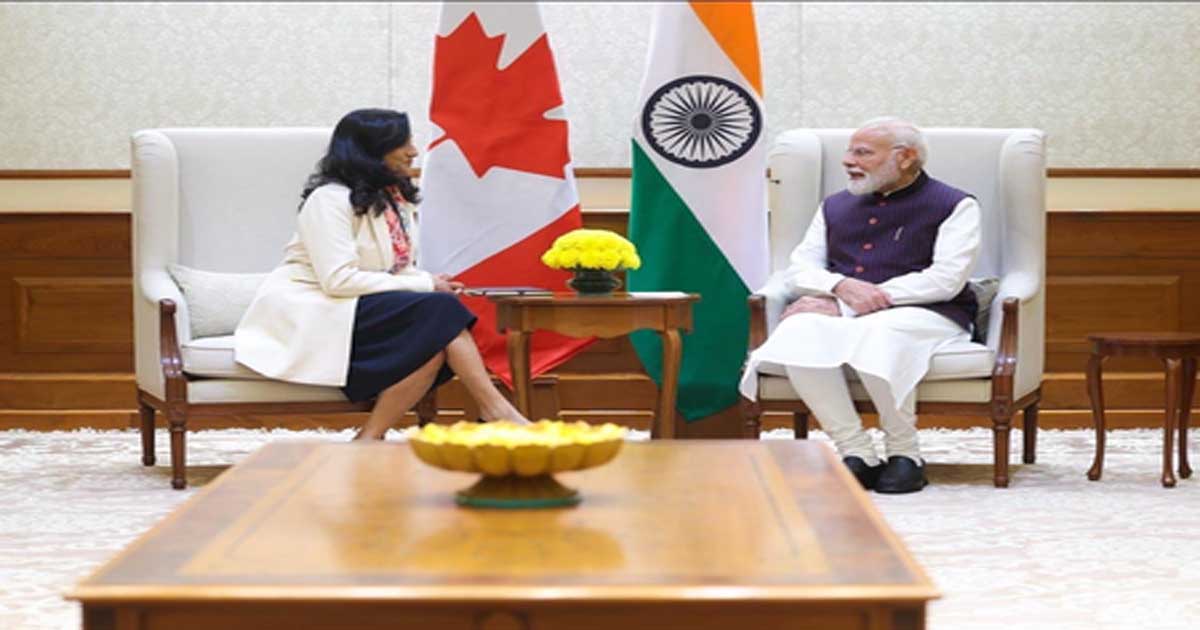International News
Pakistan and China move to takeover Gilgit-Baltistan

Prime Minister of Pakistan Imran Khan is said to use the occasion of Pakistan Day, observed each year on March 23, to make a public announcement that Pakistan occupied territory of Gilgit-Baltistan has been incorporated into its federal system as her fifth provisional province.
Gilgit-Baltistan, formerly named the Northern Areas, was only allowed to have its own assembly in 2009. The Gilgit-Baltistan assembly is controlled by the state of Pakistan from Rawalpindi where the chief of Pakistan army General Qamar Javed Bajwa has his headquarters.
Eminent PoJK historian and political commentator Dr Shabbir Chaudhary who lives in exile in the UK writes in his book titled ‘Legal Status of Jammu and Kashmir’: “everything in …Gilgit- Baltistan is controlled by Islamabad. Even the school curriculum is written by them, and our children are not taught history of Jammu Kashmir.” (p. 148)
Gilgit-Baltistan was part of the princely state of Jammu and Kashmir until November 1, 1947 when Major Alexander William Brown, the former political agent of the Gilgit agency, launched a coup against Maharaja Hari Singh and arrested Governor Brigadier Ghansara Singh. It was major Brown who actually replaced the state flag with the Pakistani flag and announced its accession to Pakistan.
He had no power to take that decision, yet as Indian troops were pushing the Pakistani invading army out of Kashmir in October 1947, Brown acted in desperation in order to deny India the passage to central Asia.
Currently, Gilgit-Baltistan and her dry port of Sost at the Pak-China border right up to the sea port of Gwadar in Balochistan are key to China’s economic expansionist design. The militant insurgency in Balochistan has brought the China-Pakistan-Economic-Corridor (CPEC) to a standstill. A massive military operation allegedly supervised by the Chinese PLA is under way to crush Baloch rebels.
It is in this backdrop that China has been exerting pressure on the Pakistan government to make sure that CPEC is made foolproof in Gilgit-Baltistan. Pakistan’s solution is to make PoGB into its 5th province and take full control of the administrative matters along with intensifying its plunder of our natural resources.
Under the current circumstances granting mining licenses to non-residents in PoGB has become a great cause for concern for locals who have been protesting for months and demand cancellation of any mining licenses issued to aliens.
This hampers the loot of natural resources of Gilgit-Baltistan by Chinese companies, most of which are state owned. By incorporating PoGB into Pakistan’s federal set up it will become possible to impose direct rule from Islamabad and any one could be granted a mining license.
Another aspect of Pakistan’s attempt to incorporate PoGB into Pakistan stem from China’s need to gain access to the clean water from our glaciers. In a book titled ‘Kashmir the Untold Story’ co-authored by Iqbal Chand Malhotra and Maroof Raza they reveal that China’s major rivers Yangtze and Yellow river are polluted hence they cannot be used for the purpose of manufacturing semiconductors.
Semiconductors are used extensively in mobile phones, cars, fighter jets, satellites and even naval ships. Hence whoever will dominate the manufacture of semiconductors in the world market will rule the digital world.
‘Chinese strategists were interested in Shaksgam valley, which is home to over 242 glaciers’. (Malhotra, Raza. p 154). It is therefore important for China to control the waters flowing into PoGB.
By incorporating PoGB, Pakistan will act in clear violation of the UN resolutions that have designated PoGB as disputed territory. This would give the Indian government the right to challenge Pakistan in the International Court of Justice.
Recent decision made by Pakistan to make PoGB her 5th province has generated a new wave of protests and discontent in the occupied region. Political leaders who traditionally side with Pakistan-based political parties such as the Pakistan People’s Party and Pakistan Muslim League Nawaz have also come out in protest warning Islamabad and Rawalpindi alike of grave consequences if such a move is made on March 23.
The question is, can Pakistan afford such an adventure that on one hand becomes a genuine reason for revolt by the locals and on the other hand paint Pakistan as a state that has committed yet another serious violation of the dictates of the United Nations.
The move to take over Gilgit-Baltistan by Pakistan and China may not be a pleasant one after all.
International News
B’desh: ‘July fighters’ threaten countrywide roadblocks to press 3-point demand

Dhaka, Oct 18: In the wake of tensions surrounding the signing of the July Charter, a group of protestors in Bangladesh, named ‘July Joddha Sangsad’ (July fighters), have announced to block all highways across the country on Sunday, pressing home their three demands, local media reported.
The demands include state recognition of those killed in the July 2024 protests; recognition of the injured as ‘July warriors’; and a specific roadmap for the rehabilitation of the families of the deceased, and legal assistance for the wounded.
Amid the boycott of several political parties, including the National Citizen Party (NCP) and four leftist parties, the July Charter was signed on Friday by the Chief Advisor to the interim government, Muhammad Yunus, members of the National Consensus Commission and leaders of different political parties.
Addressing a press conference in Dhaka, Masud Rana, chief organiser of the group ‘July Joddha Sangsad’, announced the blockade on Friday evening following clashes between the protestors and police near the Parliament complex, where they had staged a demonstration against the signing of the July Charter.
“We have been attacked. To protest the attack on us and implement our three-point demands, a blockade will be observed on the highways of every district and city from 2 pm to 5 pm on Sunday,” Bangladeshi Bengali daily ‘Jugantor’ quoted Masud as saying.
Masud accused the police of attacking their “peaceful sit-in”, saying, “We were holding our demonstration peacefully in front of the Parliament gate. Administrative officials had spoken to us, and we assured them that our programme would continue until 10 am without any disorder. But instead of initiating any discussion or solution, they suddenly launched an attack on us.”
On Friday afternoon, violent clashes broke out between law enforcers and protesters at the Parliament premises just hours before the July Charter Signing ceremony, leaving several injured.
Confirming the development, Inspector Faruk, in charge of the Dhaka Medical College Hospital (DMCH) police outpost, said that 36 people, who were involved in the July protests, were injured and were admitted to the Dhaka Medical College Hospital.
Reports suggest that as the protestors tried to rally and press their demands, the military and police personnel blocked them at the Parliament gate, triggering violence.
The police responded with a baton charge and fired three rounds of sound grenades to disperse the crowd.
Subsequently, protesters retaliated by vandalising police vehicles, including a car and a bus and setting fire to the temporary reception room, control room, and furniture installed outside the Parliament building for the July Charter Signing Ceremony.
The protestors warned the interim government, saying, “If we have to spill our blood again, the second administration will not survive either,” citing how the protests last year toppled the former Awami League government, paving the way for the Muhammad Yunus-led interim government to assume power.
Bangladesh has been gripped by numerous protests and extreme lawlessness since the democratically elected government of the Awami League, led by former Prime Minister Sheikh Hasina, was overthrown during violent protests last year.
General
Strict action will now be taken against criminals who flee the country. Their passports will be cancelled and they will not be able to travel abroad.

New Delhi: Union Home Minister Amit Shah stated that fugitives involved in various crimes, including terrorist activities, gangsterism, cyber and economic crimes, who flee the country will not be spared under any circumstances. A more stringent approach will be adopted against them. During the process of issuing Red Corner Notices against such fugitives, their passports will be red flagged, meaning they will be cancelled, preventing them from legally moving from one country to another. He also called for at least one special jail in each state, meeting international standards, to be built to refute fugitives’ claims in foreign courts about the poor quality of facilities in Indian prisons. Home Minister Amit Shah made this statement on Thursday at a two-day conference organized by the CBI on “Extradition of Fugitives – Challenges and Strategies.”
He stated that after 2027, any accused in an FIR will be able to receive justice within three years, from the lower court to the Supreme Court. He also urged police officers from all states present to establish a focus group to coordinate narcotics, terrorism, gangsterism, economic, and cybercrime, which the IB and CBI should work to accelerate through the Multi-Agency Center (MAC). He emphasized that a strict approach should be adopted not only against corruption, crime, and terrorism, but also against gangsters and criminals operating in syndicates outside India. No matter how swift the tactics of crime and criminals, access to justice must be even faster. Referring to the three new criminal laws that will come into effect in July 2024, Shah said that for the first time since independence, a provision has been made to prosecute fugitives even in their absence. Thus, if a fugitive is convicted, his status under international law changes significantly.
The enactment of the Fugitive Economic Offenders Act in 2018 empowered the government to seize the assets of fugitives. Within just four years, we have seized assets worth nearly two billion dollars, and between 2014 and 2023, assets worth approximately $12 billion have been seized. The Prevention of Money Laundering Act (PMLA) has also been strengthened. Since the CBI is the designated agency in India for the extradition of fugitives who have fled abroad, each state should establish a special cell unit with the agency’s assistance to create a mechanism for bringing back fugitives who have fled their respective states. The CBI has established a Global Operations Center (GOC) to apprehend fugitives internationally, providing real-time coordination with police forces around the world.
Regarding the online portal “Bharatpol,” established by the CBI for international police cooperation, the Home Minister stated that it has achieved significant results since its inception in January 2025. Union Home Secretary Govind Mohan, the Foreign Secretary, CBI Director Praveen Sood, and IB Chiefs, along with police officers from various states, were present on the occasion. A SOP will be developed through discussions during this two-day conference, which will address the challenges of repatriating fugitives, tracking their real-time status, and identifying shortcomings in their failure to be repatriated.
International News
SPM Modi hails efforts to impart ‘new momentum’ in bilateral ties during meeting with Canadian FM

New Delhi, Oct 13: Prime Minister Narendra Modi on Monday conveyed to Canadian Foreign Minister Anita Anand that her India visit would contribute to ongoing efforts to impart new momentum to the India–Canada bilateral partnership.
PM Modi hails ‘new momentum’ in bilateral ties during meeting with Canadian FM
Anand, the Minister of Foreign Affairs of Canada, called on PM Modi on Monday morning before holding discussions with External Affairs Minister (EAM) S Jaishankar.
Welcoming Anand, Prime Minister Modi recalled his visit to Canada in June this year for the G7 Summit during which he held an “extremely productive” meeting with Prime Minister Mark Carney.
“Prime Minister noted the significance of enhanced cooperation between the two countries in trade, energy, technology, agriculture and people-to-people ties. Prime Minister conveyed his warm wishes to Prime Minister Mark Carney and said that he looked forward to their upcoming engagements,” read a statement issued by the Prime Minister’s Office (PMO).
“I met with Prime Minister Narendra Modi this morning in New Delhi. Building on the momentum of Prime Minister Mark Carney’s meeting with PM Modi this summer at the G7 Summit, Canada and India are elevating the relationship between our countries, while maintaining our law enforcement and security dialogue and expanding our economic relationship,” Anand posted on X after the meeting with PM Modi.
Earlier, EAM Jaishankar said that the ties between India and Canada have been steadily progressing in the past few months, and the two nations are working to restore the mechanisms necessary to advance the partnership.
Welcoming Anand on her first visit to India as Canada’s Foreign Minister, EAM Jaishankar said, “India-Canada bilateral relations have been steadily progressing in the last few months. We are working to restore and reinvigorate the mechanisms necessary to advance our partnership.”
“As Prime Minister Modi noted during his meeting with Prime Minister Carney in Kananaskis, India’s approach is to move forward with a positive mindset. This morning, you met the Prime Minister. You have heard from him personally about our vision of cooperation and how best to realise it,” he added.
He also recalled the “productive” meeting between National Security Advisor (NSA) Ajit Doval and Canadian NSA Nathalie G. Drouin, calling it “an important first step towards enhancing our security cooperation.”
“Our foreign ministries at the level of the secretary of the deputy minister also met on September 19 to review the overall relationship. Our trade ministers spoke recently on October 11. So, when we look at Canada, we see a complementary economy, we see another open society, we see diversity and pluralism, and we believe that that is the basis for a close, sustainable and long-term cooperative framework,” EAM Jaishankar added.
He noted that India and Canada have prepared an ambitious roadmap to advance cooperation in various sectors, including science and technology, civil nuclear collaboration, AI, trade and agriculture.
“I’m glad that the two high commissioners have assumed their responsibilities in our respective capitals and are part of today’s meeting. This is our high commissioner with whom you have spoken,” the EAM added.
“Our responsibility as foreign ministers is to shepherd the process of rebuilding our cooperation and to ensure that it delivers on the expectations of our prime ministers and the interests of our people. It means not only taking initiatives in our particular jurisdiction, but also monitoring and integrating interactions across the entire breadth of the government. I look forward to doing so, working closely with you, Minister,” he added.
-

 Crime3 years ago
Crime3 years agoClass 10 student jumps to death in Jaipur
-

 Maharashtra1 year ago
Maharashtra1 year agoMumbai Local Train Update: Central Railway’s New Timetable Comes Into Effect; Check Full List Of Revised Timings & Stations
-

 Maharashtra1 year ago
Maharashtra1 year agoMumbai To Go Toll-Free Tonight! Maharashtra Govt Announces Complete Toll Waiver For Light Motor Vehicles At All 5 Entry Points Of City
-

 Maharashtra1 year ago
Maharashtra1 year agoFalse photo of Imtiaz Jaleel’s rally, exposing the fooling conspiracy
-

 National News1 year ago
National News1 year agoMinistry of Railways rolls out Special Drive 4.0 with focus on digitisation, cleanliness, inclusiveness and grievance redressal
-

 Maharashtra11 months ago
Maharashtra11 months agoMaharashtra Elections 2024: Mumbai Metro & BEST Services Extended Till Midnight On Voting Day
-

 National News1 year ago
National News1 year agoJ&K: 4 Jawans Killed, 28 Injured After Bus Carrying BSF Personnel For Poll Duty Falls Into Gorge In Budgam; Terrifying Visuals Surface
-

 Crime1 year ago
Crime1 year agoBaba Siddique Murder: Mumbai Police Unable To Get Lawrence Bishnoi Custody Due To Home Ministry Order, Says Report












